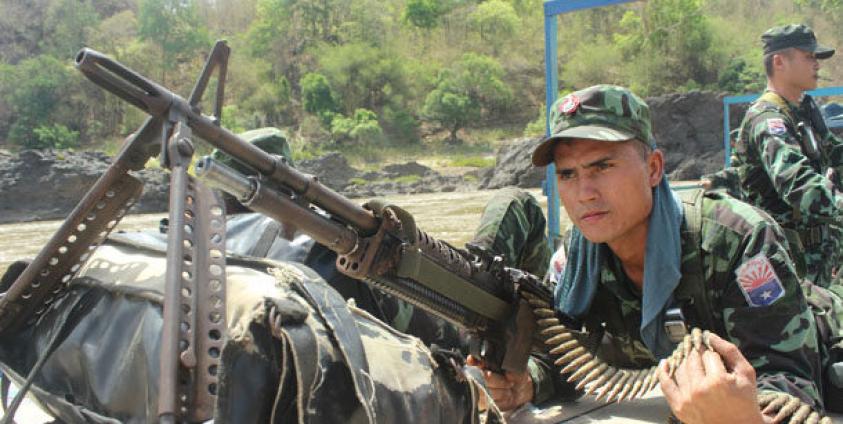The Karen National Union (KNU) has announced its intention to initiate a widespread combat campaign, rallying the entire populace, to intensify pressure on the military council, which is grappling with significant setbacks on multiple fronts.
On November 17, KNU spokesperson Padoh Saw Taw Nee conveyed this message when KNU issued its perspective on the current political and military situations.
Padoh Saw Taw Nee emphasized that the military council is under considerable strain from simultaneous attacks by ethnic armed resistance forces in several regions, including northern Shan State, and the KNU will initiate operations coordination with these resistance movements.
He also stressed that the Military Council is poised to confront increasingly assertive offensive actions from KNU, along with widespread public uprisings, political and diplomatic pressures, and sanctions across various sectors.
"In the near future, the Military Council will face successive setbacks. During that period, we will exert pressure on the Military Council through diplomatic means and sanctions. Simultaneously, we will embark on a People-Engaged Battle, rallying the entire population”, he said.
Since the coup staged by the Military Council on February 1st, 2021, there have been over 11000 clashes between KNLA-led resistance forces and the Military Council. According to KNU records, 10741 Military Council troops were killed, with over 7000 sustaining injuries.
The Military Council has been severely weakened due to the staggering number of casualties incurred in the conflict within KNU territory, reaching a point where its operational capacity is significantly compromised, Padoh Saw Taw Nee also suggested.
“This time, we will pound the Military Council even harder. At present, it should be said that the Military Council is politically and militarily very shaky and unstable”, he added.
Also, Padoh Saw Taw Nee pointed out that the Military Council is currently grappling with a well-coordinated offensive by the Three Brotherhood Alliance in northern Shan State, further compounded by a manpower shortage, making it challenging to replace deceased troops.
He also cautioned that the desperate Military Council, having exhausted both military and political options, may resort to old tactics aimed at manipulating public opinion. This could include the release of specific political prisoners or negotiations with incarcerated government leaders.
Alternatively, he remarked that there might be superficial changes, such as the replacement of Senior General Min Aung Hlaing, the current head of the Military Council.
Facing relentless offensives from resistance forces nationwide, including the Three Brotherhood Alliance, the Military Council is grappling with the loss of almost 200 outposts and the consistent seizure of towns by the resistance forces.







